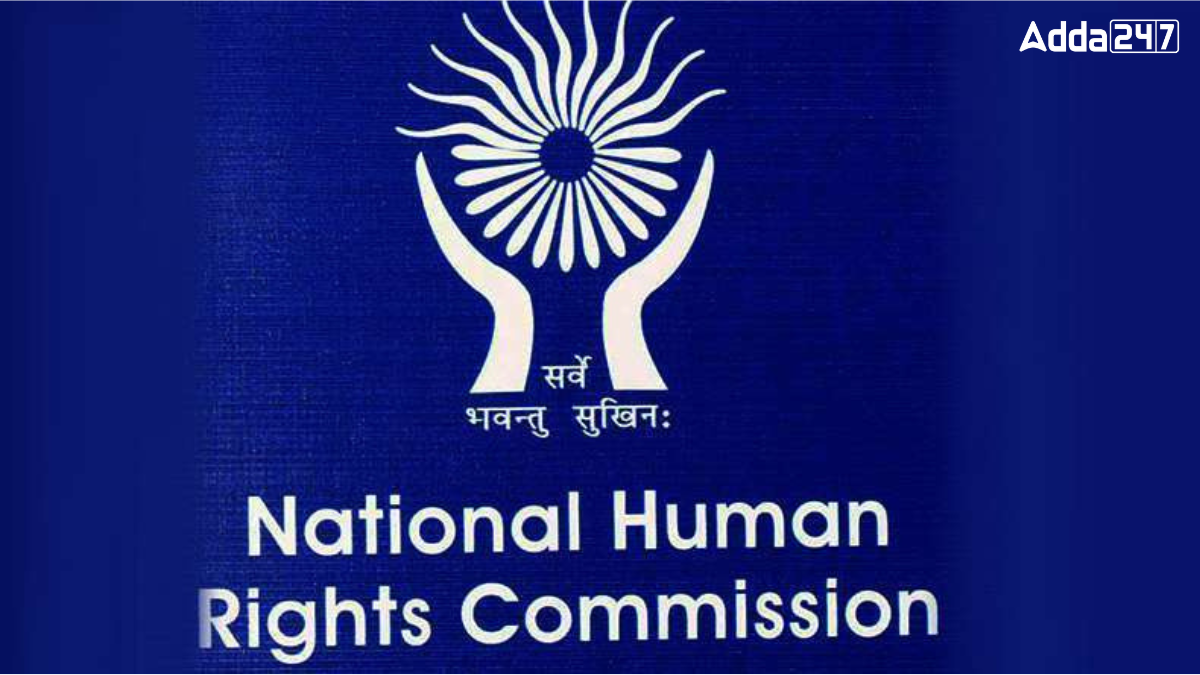The National Human Rights Commission of India (NHRC) is a statutory body established on 12 October 1993 under the Protection of Human Rights Ordinance of 28 September 1993. It gained statutory status through the Protection of Human Rights Act, 1993 (PHRA). The NHRC’s primary goal is to safeguard and promote human rights, focusing on life, liberty, equality, and dignity, as enshrined in the Indian Constitution and international treaties.
Key Details About NHRC
- Full Form: National Human Resources Commission
- Formation: 12th October 1993
- Headquarter: New Delhi
- Motto: sarve bhavantu sukhinah
- Governing Body: Ministry of Home Affairs
Full Form of NHRC
The full form of NHRC is the National Human Rights Commission. It is an autonomous statutory body established in India to protect and promote human rights, ensuring that individuals’ rights to life, liberty, equality, and dignity are upheld in accordance with the Constitution and international standards.
History of the National Human Rights Commission (NHRC)
Established in 1993 under the Protection of Human Rights Act, the NHRC was created to address the need for a dedicated body to safeguard human rights. The Commission is tasked with inquiring into allegations of human rights violations and providing relief to victims. Its role has evolved over the years, receiving recognition for its efforts to uphold human rights standards and address abuses effectively.
NHRC Motto and Headquarter
The NHRC operates under the motto “Sarve Bhavantu Sukhinah,” which means “May All Be Happy.” Its headquarters is located at Manav Adhikar Bhavan, Block-C, GPO Complex, INA, New Delhi.
Objectives of the NHRC
The NHRC’s objectives are:
- Protecting and promoting human rights for all individuals, particularly vulnerable and marginalized groups.
- Investigating allegations of human rights violations and taking suo moto action.
- Providing relief and recommending measures for preventing human rights abuses.
- Enhancing public awareness and understanding of human rights.
- Reviewing and recommending changes to laws and policies impacting human rights.
- Collaborating with other organizations to advance human rights.
Composition of NHRC
The NHRC is composed of a chairperson and five members. The chairperson must be a former Chief Justice of India or a judge of the Supreme Court. The members include:
- A sitting or former Supreme Court judge
- A Chief Justice of a High Court
- Three members, including at least one woman, with expertise in human rights
Additionally, the chairpersons of various national commissions, such as the National Commission for Scheduled Castes and the National Commission for Women, serve as ex officio members.
Appointment Process of NHRC
The chairperson and members of the NHRC are appointed by the President of India. The selection process involves a committee that includes:
- The Prime Minister
- The Home Minister
- Leaders of the Opposition in both the Lok Sabha and the Rajya Sabha
- The Speaker of the Lok Sabha
- The Deputy Chairman of the Rajya Sabha
Functions of the National Human Rights Commission
The NHRC performs several key functions under the Protection of Human Rights Act, including:
- Inquiry into Human Rights Violations: The NHRC investigates human rights violations by government entities or public servants, either proactively or reactively.
- Protection and Promotion of Human Rights: It makes recommendations for improving the protection of human rights.
- Review of Human Rights Factors: The NHRC examines factors, such as terrorism, that affect human rights and suggests remedial measures.
- Study of International Treaties: It studies human rights treaties and instruments and offers suggestions for their implementation.
- Jail Visits and Inmate Conditions: The commission visits jails to study the conditions of inmates.
- Human Rights Education: The NHRC promotes human rights education and awareness through seminars, media, and publications.
- Collaboration with NGOs: It encourages and supports NGOs working in the field of human rights.




 Which District is known as the Medical C...
Which District is known as the Medical C...
 Which was the First Women's University i...
Which was the First Women's University i...
 L&T Vyoma to Study 250 MW Green AI D...
L&T Vyoma to Study 250 MW Green AI D...








